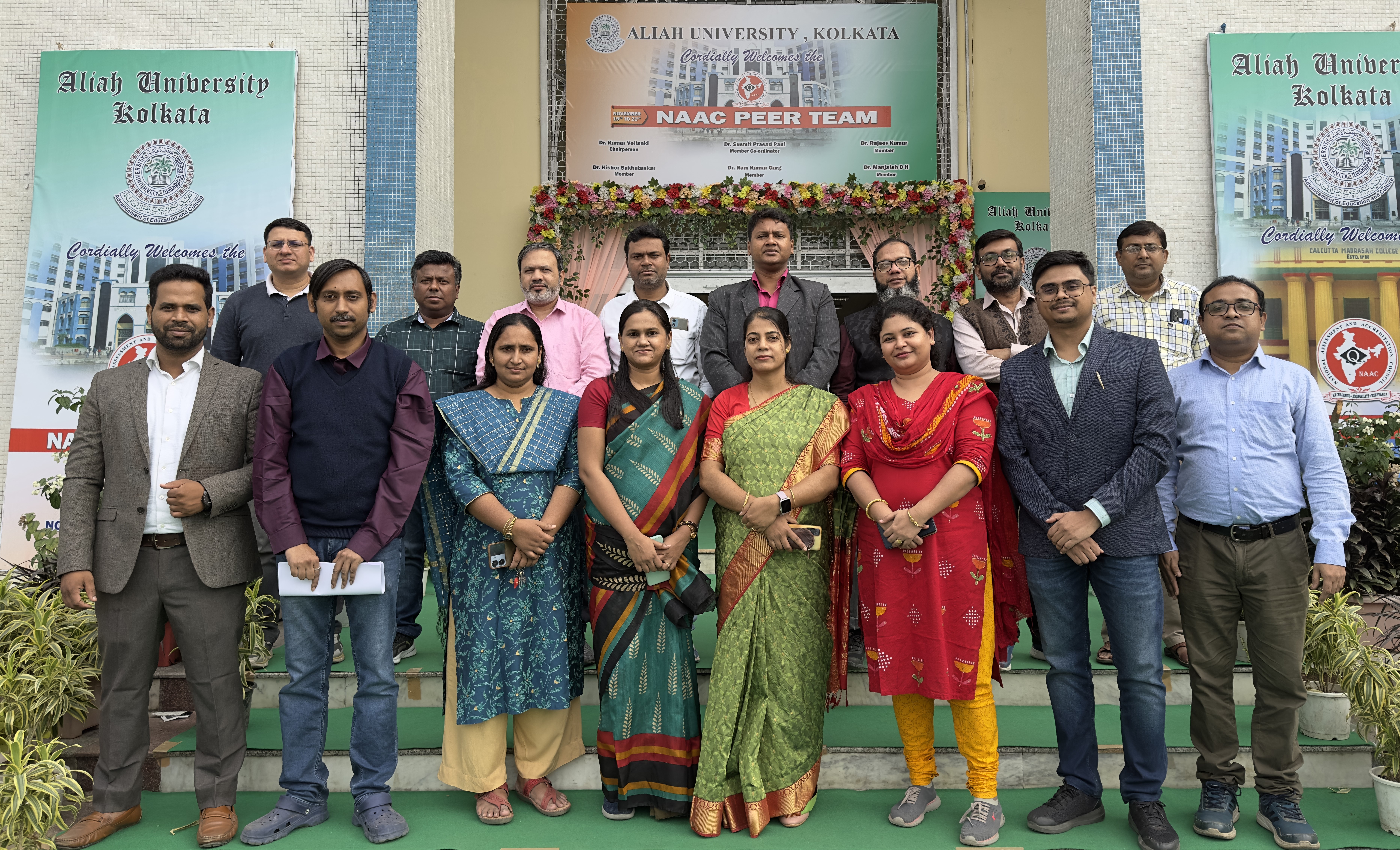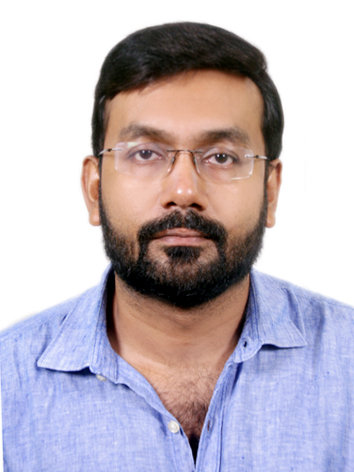- Old Site: old.aliah.ac.in

- The Institute
- Academics
- Departments & Centers
- Admission
- Research
- Examination
- Training&Placement
- Students
- Bulletin
- Contact

Department of
COMPUTER SCIENCE AND ENGINEERING
Quick View
Dr. Souvik Sengupta Associate Professor / COMPUTER SCIENCE AND ENGINEERING

Email : ssg@aliah.ac.in
Address :
Dr. Souvik Sengupta is currently working as an Associate Professor in the Department of Computer Science & Engineering in Aliah University. He received his PhD from University of Calcutta and MTech from MAKAUT (then WBUT). His research area includes: Machine Learning, Natural Language Processing, Image Processing, Formal Methods, Software Engineering and Learning Technology.
Journal Papers Published
Selected Publications:
- Dave, V., Chatterjee, S., Ghosh, S., & Sengupta, S. (2019), Analysis and Classification of Legislative Text Using Machine Learning and Natural Language Processing, In Proceedings of The 10th Inter University Engineering, Science & Technology Academic Meet 2019, FOSET
- Datta, S., & Sengupta, S. (2018), A Review on the Adaptive Features of E-Learning., International Journal of Learning and Teaching Vol. 4, No. 4, December 2018
- Sengupta, S. & Dasgupta (2017), Architectural design of a LMS with LTSA-conformance, in Education and Information Technologies, Springer, January 2017, Volume 22, Issue 1, pp 271–296
- Sengupta, S., & Dasgupta, R. (2016), LTSA Conformance Testing to Architectural Design of LMS using Ontology, Education & Information Technology, Springer, Volume 7, Issue 1, pp 1-19.
- Sengupta, S., & Dasgupta, R. (2015). Use of Semi-Formal and Formal Methods in Requirement Engineering of ILMS. ACM SIGSOFT Software Engineering Notes, 40(1), pp.1-13.
- Sengupta, S., & Dasgupta, R. (2015). A VDM-based Approach for Specifying and Testing Requirements of Web-applications. Elsevier, Procedia Computer Science, 46, pp. 774-783.
- Sengupta, S., & Dasgupta, R. (2014).Towards Developing Requirement Analysis Model of iLMS. In Proceedings of the 2014 International Conference on Electronic and Communication Systems. Track on Communications, Circuits and Educational Technologies, pp. 154-162.
- Book Chapter - “Using Semiformal and Formal Methods in Software Design: An Integrated Approach for Intelligent Learning Management System” In Advances in Intelligent Systems and Computing, Volume 305, Springer India, pp. 53-65, 2014.
- Sengupta, S., & Dasgupta, R. (2013). Integration of functional and interface requirements of an web based software: a VDM based formal approach. In Proceeding of IASTED International Conference on Software Engineering, pp. 2013-796.
- Sengupta. S., & Dasgupta. R., (2012). Identifying, Analysing and Testing of Software Requirements in Learning Management System. In Proceedings of the International Conference on Virtual Learning ICVL 2012, Romania, pp. 253-261.
- Sengupta, S., Mukherjee, B., Bhattacharya, S., & Dasgupta, R. (2012). OLAP based Scaffolding to support Personalized Synchronous e-Learning. International Journal of Managing Information Technology, Inderscience 4(3), pp.73-80.
- Sengupta, S., Sahu, S., & Dasgupta, R. (2011). Construction of Learning Path Using Ant Colony Optimization from a Frequent Pattern Graph. International Journal of Computer Science Issues, Vol. 8, Issue 6, No 1, November 2011, pp. 314-321.
- Sengupta, S., Sahu, S., & Dasgupta, R. (2011). A Tree Based Data Structure for Recommendation of an Efficient Learning Path in Definition Learning, In Proceedings of IEEE International Conference on Computational Intelligence and Computing Research, 2011, pp. 903-907.
- Sengupta. S., & Dasgupta. R., (2010). A Data Mining Approach to Determine an Efficient Learning Path, In Proceedings of the WorldComp 2010, International Conference on Computer Science, Las Vegas, USA, pp. 59-64.
- Sengupta, S., Chaki, N., & Dasgupta, R. (2009). Learners' Quanta based Design of a Learning Management System. International Journal of Education &. Information Technologies, Issue 1, Volume 3, 2009, pp. 67-74.
- Sengupta, S., Chaki, N., & Dasgupta, R. (2008). Design of a Learning Management System on LTSA framework. In Proc. of the 7th WSEAS Int’l. Conf. on Education and educational Technology, Italy, pp. 65-70.
All right reserved: Aliah University © 2025
Design & Developed by Keyline
Warning: include(common/googleanalytics.php): failed to open stream: No such file or directory in /home/aliahaci/public_html/department/common/footer.php on line 201
Warning: include(): Failed opening 'common/googleanalytics.php' for inclusion (include_path='.:/opt/cpanel/ea-php72/root/usr/share/pear') in /home/aliahaci/public_html/department/common/footer.php on line 201

